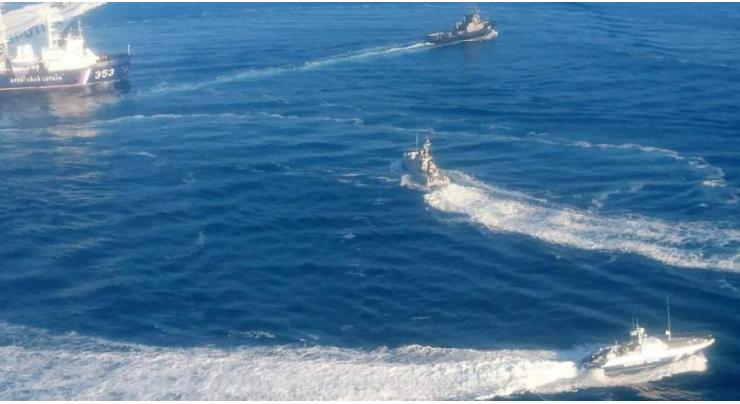
EU Members Lack Common Position On Sanctions Over Kerch Strait Incident - Source
Fahad Shabbir (@FahadShabbir) Published December 07, 2018 | 06:13 PM

EU member states currently do not have a common position regarding possible new sanctions against Russia in connection with the Kerch Strait incident, and no decisions on this issue are expected to be made at the upcoming Monday talks of EU foreign ministers, a diplomatic source told journalists in Brussels on Friday.
On Monday, foreign ministers of EU member states will conduct talks in Brussels, and an informal dinner with Ukrainian Foreign Minister Pavlo Klimkin will be also held.
"There are discussions about the situation in the Sea of Azov, but there are no [discussions on] sanctions. Some countries want to raise this issue, others do not. At this point there is no consensus among the 28 countries on this issue," the source said, asked whether sanctions in connection with the incident would be discussed next week.
The discussion now is primarily not about whether sanctions are necessary, but about actions needed to reduce tensions in the Sea of Azov and promote a dialogue between the two parties so that a decision can be reached, he noted.
"That is, you need to agree on measures to support Ukraine and send a number of strong signals, because if everyone comes to the meeting with proposals that others will not support, what signal will we send then?" the source wondered.
The main task is to determine a common position, he concluded.
On November 25, three ships of the Ukrainian Navy Berdyansk, Nikopol, and Yany Kapu breached the Russian border, entered Russian territorial waters that were temporarily closed, and began moving toward the Kerch Strait, which serves as an entrance into the Sea of Azov. The Ukrainian vessels and their crew were detained by Russia after failing to respond to a lawful demand to stop.
In response to the incident, Ukrainian President Petro Poroshenko signed a decree declaring martial law in several Ukrainian regions located near the Russian border, and the coasts of the Black Sea and the Sea of Azov.
Russian President Vladimir Putin has said that the incident was a provocation prepared in advance as a pretext to introduce martial law in Ukraine. Putin said the provocation could be linked to Poroshenko's low approval rating ahead of the presidential campaign set to start in late December.
Related Topics
Recent Stories

Housing Ministry prioritizes transparency in providing accommodation to federal ..

NGO donates wheelchairs to enhance accessibility & mobility for patients

Punjab Chief Minister Maryam Nawaz Sharif launches expanded health service progr ..

Minister highlights major health projects launched by CM Maryam

Mongolian envoy for boosting bilateral economic ties

GKMC achieves hundred percent results in MBBS examination

Secretary Human Rights Dept calls for setting up district level offices

Vaccination play effective role to prevent the spread of typhoid: Rashid Khan

Drive lunched to educate on proper household waste disposal

PFA destroys 300kg of dead chicken

Sindh Govt committed to clean the environment of Karachi: Mayor Karachi

Langov annoyed over law and order in Balochsitan
More Stories From World
-

Panama president-elect pledges to deport migrants who cross Darien Gap
6 minutes ago -

Top opponent of India PM Modi leaves prison on bail
1 hour ago -

ICUBE-Q's initial images from space a historic day: Ambassador Hashmi
1 hour ago -

Third week of evidence wraps at Trump's criminal trial
2 hours ago -

Madinah : 3,485 Pakistani Hujjaj arrive in seamless flight operation
2 hours ago -

UN, EU officials condemn 'escalation' of violence against UNRWA
2 hours ago
-

Russia attacks Ukraine's northeast in new ground offensive
3 hours ago -

Reasons to experience magic of Sharjah Children’s Reading Festival this weekend
3 hours ago -

Paris officer 'between life and death' after police station shooting
3 hours ago -
Rafah offensive would lead to 'humanitarian disaster': UN chief
3 hours ago -
Taylor Swift fever grips Paris at start of Europe tour
3 hours ago -
S.Africa's top court hears critical Zuma election case
3 hours ago








